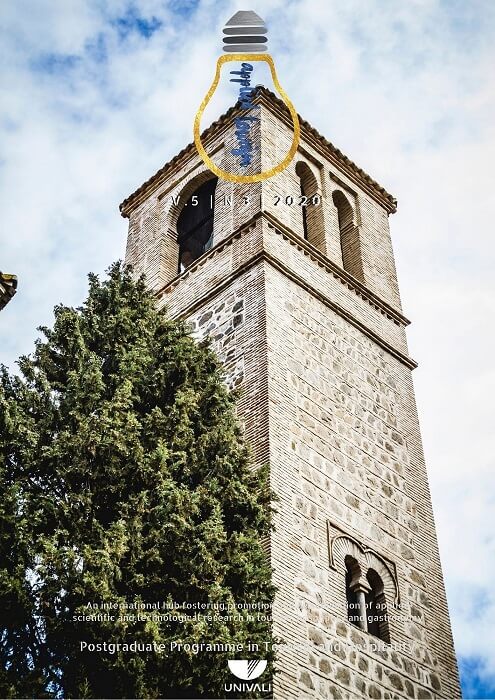An integrated system for tourism destination management: reflections and proposal of a conceptual model from the perspective of hospitality
DOI:
https://doi.org/10.14210/at.v5n3.p26-34Keywords:
Tourism, Hospitality, Competitiveness, Innovation, Stakeholders.Abstract
This report presents the experience of the implementation of the “Tourism Observatory | SIGESTur” project, an action developed at the Federal Institute of São Paulo (IFSP Campus Cubatão). The project began in 2016, as result of academic research and university extension activity. This work reports and analyzes the results of the project, and proposes a model for innovative management of tourism destinations in the Brazilian context. In its first year, the project was considered one of the ten most innovative ideas in Brazilian tourism, at the I Tourism Innovation Camp, a contest promoted by the Panrotas portal with technical support from Sebrae (national development agency). In 2017, the case entitled “Hospitality and hostility relations among stakeholders: Influences in the competitiveness of tourist destinations” received an award during the IV World Research Summit for Tourism and Hospitality, a congress held in Orlando (USA). The project consists of two work fronts. For the elaboration of this report of experience, bibliographical and documentary research were carried out. The data analysis was done in 2019 to ensure that all previous actions were recorded. In the results, the establishment of a model is highlighted, for collecting, processing and analyzing data and distributing information to professionals in the travel and tourism industry.
References
Buhalis, D. (2000). Marketing the competitive destination of the future. Tourism Management, 21(1), 97-116.
Cockburn-Wootten, C.; Brewis, J. (2014). Crossing thresholds: Hospitality and professionalism in Aotearoa New Zealand social work. Hospitality & Society, 4(2), 115-133.
Eichhorn, V.; Miller, G.; Michopoulou, E.; Buhalis, D. (2008). Enabling access to tourism through information schemes? Annals of Tourism Research, 35(1), 189-210.
Lashley, C. (2015). Hospitalidade e hospitabilidade. Revista Hospitalidade, 12, 70-92.
Lashley, C. (2008). Studying Hospitality: Insights from Social Sciences1. Scandinavian Journal of Hospitality and Tourism, 8(1), 69-84.
Lashley, C. (2000). Toward a theoretical understanding. In: Lashley, C.; Morrison, A. (Eds.) In Search of Hospitality: Theoretical Perspectives and Debates. Oxford (UK): Butterworth-Heinemann.
Lugosi, P.; Jameson, S. (2017). Challenges in hospitality management education: Perspectives from the United Kingdom. Journal of Hospitality and Tourism Management, 31, 163-172.
Theorga, A. B. (2016). Os Observatórios de Turismo no Brasil. Dissertação (Mestrado em Turismo)– Universidade de Brasília, Brasília.
Wang, Y.; Xiang, Z. (2007). Toward a Theoretical Framework of Collaborative Destination Marketing. Journal of Travel Research, 46(1), 75-85.
Wassall, A. R. A.; Salles, M. R. R. (2019). Cidades e praças: ambivalência da hospitalidade em espaços públicos. Revista Rosa dos Ventos, 11(2), 386-399.
Downloads
Published
Issue
Section
License
In this term of responsibility I (we) certify the participation in the drafting of the attached article, thereby making public my (our) responsibility for its content. I (we) declare not omitting any connections or financing agreements between I (we) and entities and / or institutions that may have an interest in the publication of this article. I (we) certify that the article is original and that the work, in whole or in part, or any other work with content substantially similar to my (our) authorship, in any other format (printed or electronic), was not sent to another journal and will not be sent while is being considered by the Applied Tourism. In this consent form, the authors give permission to the journal, in the case of approval by the Editorial Board, for the publication of the attached article in hard copy and/or electronic form, in a regular edition of the journal.










